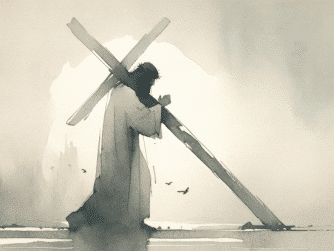In the spring of 1947 Bedouin goat-herders, searching the cliffs along the Dead Sea for a lost goat, came upon a cave containing jars filled with ancient manuscripts. This discovery caused a sensation throughout the world and continues to fascinate the scholarly community to this day. Further discoveries were made in the surrounding cave network, thirteen miles east of Jerusalem, totaling eight hundred manuscripts in all. These ‘Dead Sea Scrolls’ as they came to be known, contained copies of the Book of Isaiah, Deuteronomy and Psalms amongst others. What impact did this finding have on the validation of modern biblical texts? Tune in now to find out…
Here is a complete transcript of the podcast…(below)
“I’m going to throw quite a lot of information at you from various sources today. Things I’ve come across during my study time that I’d like to share. Much of which should be quite interesting but most of all it validates the Biblical narrative and accuracy of the modern-day translations. The story I’m about to tell you is true and it sounds like something right out of an Indiana Jones movie or a mystery adventure by Nancy Drew. “In the spring of 1947 Bedouin goat-herders, searching the cliffs along the Dead Sea for a lost goat (or for treasure, depending on who is telling the story), came upon a cave containing jars filled with manuscripts. That find caused a sensation when it was released to the world and continues to fascinate the scholarly community and the public to this day.
These “Dead Sea Scrolls” as they came to be called, were most likely written by the Essene’s during the period from about 200 B.C. to 68 A.D. The Essene’s are mentioned by Josephus and in a few other sources, but not in the New Testament. The Essene’s were a strict Torah observant, Messianic, wilderness, new covenant Jewish sect. They were led by a priest they called the “Teacher of Righteousness,” who was opposed and possibly killed by the establishment priesthood in Jerusalem. The first discoveries came to the attention of scholars in 1948, when seven of the scrolls were sold by the Bedouin herder to a cobbler and antiquities dealer called Kando. The cave in which the scrolls were discovered was 13 miles east of Jerusalem. There are now identified among the scrolls, 19 copies of the Book of Isaiah, 25 copies of Deuteronomy and 30 copies of the Psalms. Prophecies by Ezekiel, Jeremiah and Daniel not found in the Bible are written in the Scrolls.
Now it is interesting that the early church father Origen (in the third century AD) mentioned there were Hebrew and Greek manuscripts that had been stored in jars in caves near Jericho. In the ninth century a patriarch of the Eastern church, Timothy I, wrote a letter to Sergius, the archbishop of Elam, in which he too referred to a large number of Hebrew manuscripts seen in a cave near Jericho. So, there was always a rumor that perhaps there were still hidden manuscripts out there in the wilderness to be discovered.
Now Kando, the dealer sold three of the scrolls to Hebrew University, and four to the Syrian Orthodox monastery of St. Mark. These four visited the shores of the USA, the American School of Oriental Research, where they came to the attention of American and European scholars. Further search of Cave one revealed archaeological finds of pottery, cloth and wood, as well as a number of additional manuscript fragments. It was these discoveries that proved decisively that the scrolls were indeed ancient and authentic. Why am I telling you all this…just keep listening?
Between 1949 and 1956, in what became a race between the Bedouin and the archaeologists, ten additional caves (11 total) were found in the hills around Qumran, caves that yielded several more scrolls, as well as thousands of fragments of scrolls: the remnants of approximately 800 manuscripts dating from approximately 200 BC to 68 AD. Within those manuscripts was the book of Isaiah from beginning to end, apart from a few small, damaged portions. Many believe these copies date back to 335 BC, several hundred years before Christ was born. Check this out…. This manuscript is almost identical to the Hebrew bible we currently have in our possession with only a few minor grammatical changes, and it became part of the King James Bible. In other words, this 2400-year-old manuscript of the book of Isaiah matches our modern bibles word for word, barring some grammatical changes. Friend, that is a very powerful testimony to the preserving power of God’s word throughout the Millennia.
The book of Isaiah has remained unblemished and intact. I said all of that to say that God is awesome! Consider this preservation of his word. Scholars believe that when the Roman Emperor Titus sacked Jerusalem in 66 AD, the scribes and Pharisees hid some of these scrolls away to preserve God’s word, later to be discovered. Isn’t it ironic that these scrolls were discovered months before Israel became a nation in 1948! God’s timing was perfect! Validation of the ancient texts in unison with the birth of Israel once again shows God’s miraculous sense of timing and his promise to restore Israel as a nation in the latter days. So back to Isaiah the prophet who ministered to the nation of Judah the southern kingdom and his contemporaries were Micah and Hosea.
Did you know…
- This book consists of 66 chapters just as there are 66 books in the bible.
- Isaiah is a like a miniature Bible because the first 39 chapters like the 39 books of the OT are filled with judgment upon immoral and idolatrous men.
- The final 27 chapters like the books of the New Testament of which there are 27, declare a message of hope.
- The word salvation occurs 27 times in this book and only 7 times in all the other prophets combined.
- Isaiah was of course a prophet to the southern kingdom Judah; the northern kingdom Israel had fallen many years earlier into captivity to Assyria. He spent most of his time in Jerusalem.
- The book of Isaiah has been called, “the gospel according to Isaiah.”
- Talmudic tradition states that Isaiah’s persecutors sawed him in half during the reign of Manasseh (Heb 11:37).
- Four kings served during Isaiah’s long tenure which stretched 60 years.
The book of Isaiah was written 700 years before the birth of Jesus. In the Old Testament alone there are over 300 different prophecies pointing to Christ’s first coming but perhaps Isa 53 is the most powerful of all and for that reason it is known as the Redemption chapter.
Let’s read a portion of this redemptive chapter now; read Isa 53 verses 1-6: “Who hath believed our report? and to whom is the arm of the Lord revealed?2 For he shall grow up before him as a tender plant, and as a root out of a dry ground: he hath no form nor comeliness; and when we shall see him, there is no beauty that we should desire him.3 He is despised and rejected of men; a man of sorrows, and acquainted with grief: and we hid as it were our faces from him; he was despised, and we esteemed him not.4 Surely he hath borne our griefs (sicknesses), and carried our sorrows (pains): yet we did esteem him stricken, smitten of God, and afflicted.5 But he was wounded for our transgressions, he was bruised for our iniquities: the chastisement of our peace was upon him; and with his stripes we are healed.”
Jesus “had no form or comeliness” he wasn’t particularly handsome or physically special. The suffering of Jesus Christ was foretold by Isaiah the prophet. A sinless one would come. He would be beaten beyond recognition. But the sins of all of us — our iniquities, our sicknesses, and our diseases were all laid upon Him. It wasn’t the Jews or Romans who are to blame for killing Jesus, we are. It was God Himself that brought this about and Jesus voluntarily went to the cross to redeem us from sin. Jesus was made sin with our sinfulness that we might be made righteousness with His righteousness.
In verse 5 it says he was bruised for our iniquities. The most modern version of the word iniquity is rebellion. Not everyone has committed adultery or gotten drunk or whatever, but there is one thing we all have in common; we have all gone our own way; we have all gone astray. All Jews, Catholic, Protestants, Episcopalians, Asian’s, Africans, Caucasians, African Americans etc. are all rebels, unless they are born again and receive newness of life. The Bible says Jesus actually became sin on the cross. Some would contend that because Jesus never experienced failure in his life that his sacrifice was incomplete. But no friend, because he became sin, then we are now able to become the righteousness of God. Prove it, Pastor! I will, let’s turn to 2 Cor 5:21. 2 Corinthians 5:21, 21 “For he hath made him to be sin for us, who knew no sin; that we might be made the righteousness of God in him.” We have to understand that the word for iniquity in the Hebrew is ‘Avon’. It not only means rebellion but all the evil consequences of rebellion, punishment and guilt that goes along with it. Remember what Cain said after he murdered Abel? Genesis 4:13 – 13 “And Cain said unto the Lord, my punishment is greater than I can bear.“
Why did he feel guilty? He felt rightfully convicted by the Holy Spirit and condemned by Satan. The sin of murder not only affects this generation but the ones to come because it also murders the future progeny that could have been spawned from the victim. Blood has a voice. The Lord himself said that the blood of Abel cried out to Him. Well, you might say, I understand that Cain was a murderer, I would never do that, but the Apostle John, inspired by the Holy Spirit raised the bar when he said, “Whosoever hateth his brother is a murderer: and ye know that no murderer hath eternal life abiding in him“ 1 John 3:15. If we allow hate to abide in our hearts over the long term, we need to be careful because no murder has been committed without meditating upon the thought or murder first or imagining to do it. A true believer let’s go of offence and moves on. Don’t let those things fester in your heart my friends. We need to guard our hearts because out of it are the issues of life. If you have unforgiveness festering in you right now, I urge you to let it go and don’t spend another day in such condemnation.
“And almost all things are by the law purged with blood; and without shedding of blood is no remission” Heb 9:22. We deserved punishment for our iniquity and our rebellion toward God. Christ shed his blood and took our punishment for us. We deserved it, because we had iniquity within our members. We learn from Isaiah 53 that the Lord God laid on His suffering Servant, the rebellion of us all and the evil consequences of rebellion. My friend, 700 years before Christ fulfilled every jot and title of the law, his exploits were already embedded within the scroll of the great prophet Isaiah. No other religion boasts of the plethora of prophetic utterances that Christianity does.
The God of Christianity said where he was going to be born, when he was going to be born and how He was going to be born, hundreds of years in advance. The probability of Jesus fulfilling just 8 of these 353 prophecies of his 1st coming would be 1 in 1017. That’s 1 in 100 million million. No other religion can hold claim to the fulfillment of such rich promises and validates the unique truth of Christianity. Our God truly breathed his life into the scriptures and there is none like Him. The Dead Sea scrolls provided another proof of the integrity of God’s word in the modern era. In fact, the discovery of the scrolls in caves near the Dead Sea in 1947 is considered by many scholars to be the most important manuscript discovery of modern times. The Dead Sea Scrolls provide a new background against which one can study the NT and the beginnings of Christianity with greater understanding and confidence that what we read in the pages of our Bible is the actual word of God.”
https://carljosephministries.com/podcast/antiochus-iv-epiphanes-daniel-chapter-8/
https://www.biblicalarchaeology.org/daily/biblical-artifacts/dead-sea-scrolls/what_are_the_dead_sea_scrolls/
Title: The Dead Sea Scrolls
Related keyword searches:









The data about the dead sea scrolls is historically interesting. But we do not need things that you hold in your hand to authenticate the ancient Scriptures that were ‘spoken from the beginning.’
How much better it is when men simply believe what is written, asking for the witness of the holy spirit – that is the ‘spirit of truth’ given to all men who believe, rather than looking for proofs in caves, and the physical world. This post Is lacking in the earmark of the witness of the Holy Spirit. In particular, by your interpretation of Isaiah, 53:2. The record is not talking about the Lord’s physical appearance. A review of the original Hebrew words used in Isaiah 53 assert that the Holy Spirit is describing a man who came with no pomp., no ceremony, no magnificence, that would attract the masses. And that’s exactly what he was. A man of humble birth, born of modest parents, in the smallest of the cities of israel – Bethlehem,.. having a ‘blue collar trade’, carpentry, no glory, no jewelry, no pomp. That’s what the verse is talking about. We can fein imagine the Lord God inserting in the most important scripture of the book about his son… whether or not the man was handsome.